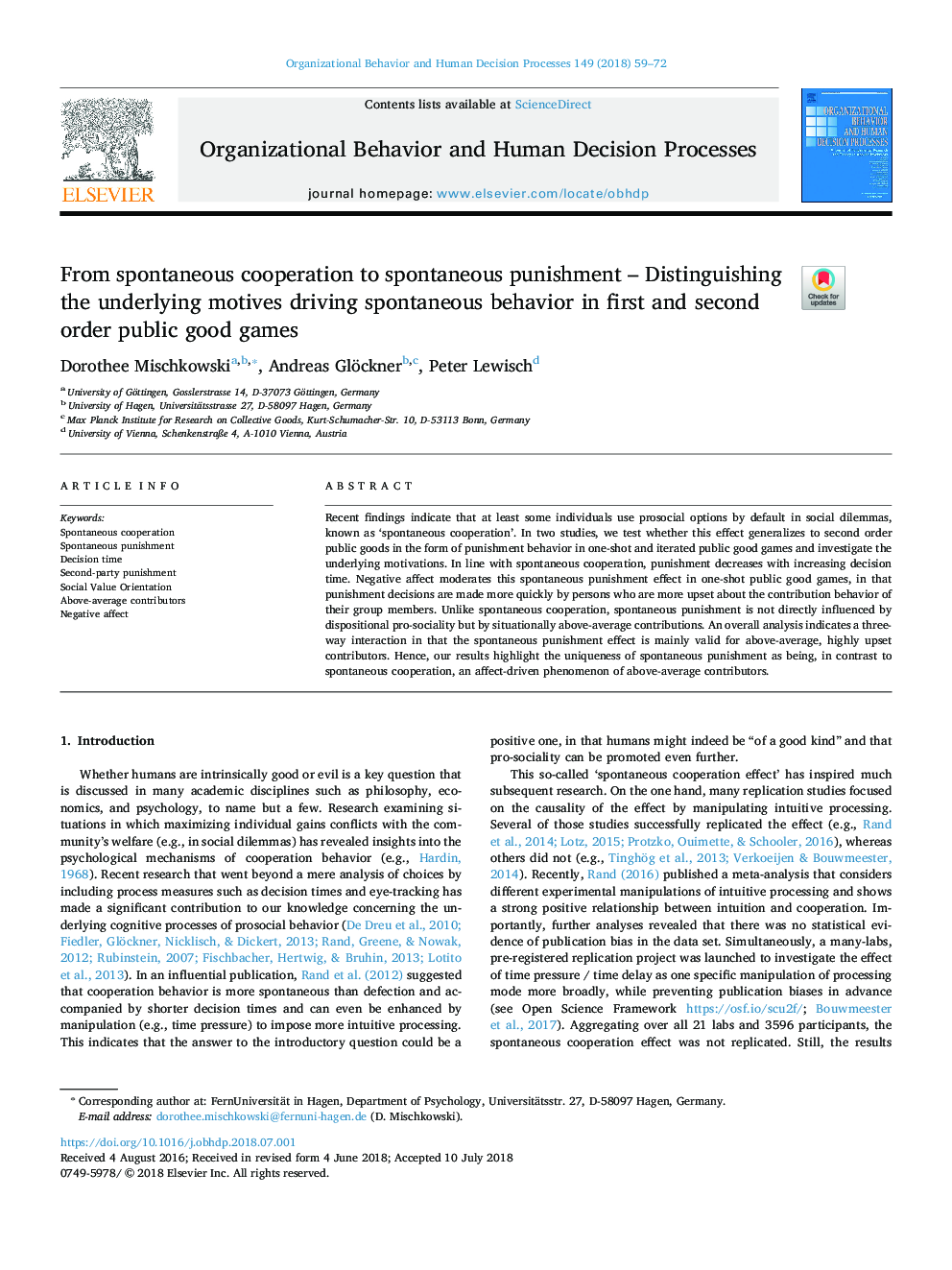| Article ID | Journal | Published Year | Pages | File Type |
|---|---|---|---|---|
| 11029817 | Organizational Behavior and Human Decision Processes | 2018 | 14 Pages |
Abstract
Recent findings indicate that at least some individuals use prosocial options by default in social dilemmas, known as 'spontaneous cooperation'. In two studies, we test whether this effect generalizes to second order public goods in the form of punishment behavior in one-shot and iterated public good games and investigate the underlying motivations. In line with spontaneous cooperation, punishment decreases with increasing decision time. Negative affect moderates this spontaneous punishment effect in one-shot public good games, in that punishment decisions are made more quickly by persons who are more upset about the contribution behavior of their group members. Unlike spontaneous cooperation, spontaneous punishment is not directly influenced by dispositional pro-sociality but by situationally above-average contributions. An overall analysis indicates a three-way interaction in that the spontaneous punishment effect is mainly valid for above-average, highly upset contributors. Hence, our results highlight the uniqueness of spontaneous punishment as being, in contrast to spontaneous cooperation, an affect-driven phenomenon of above-average contributors.
Related Topics
Social Sciences and Humanities
Business, Management and Accounting
Marketing
Authors
Dorothee Mischkowski, Andreas Glöckner, Peter Lewisch,
